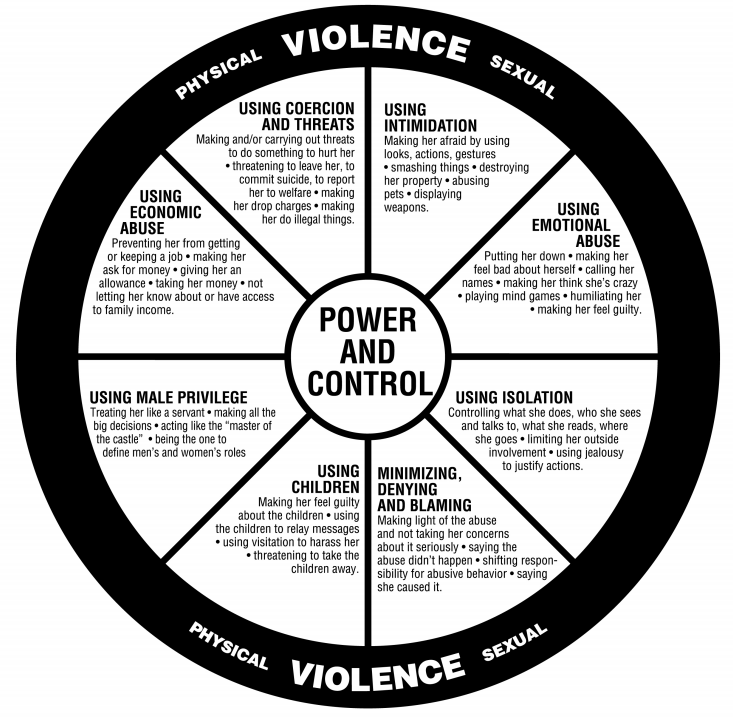Domestic Violence is about Power and Control, not Anger
A common misconception of domestic violence/abuse is that the abuser is acting out of anger. In actuality, the abuser seeks power and control over the victim to keep them in the relationship by using some or all of the following: coercion, isolation, threats, intimidation, physical and sexual violence.
Following are some of the tactics abusers use to hold power and control in their relationships:
The abuser will use humiliation as a tool to make you question your worth such as making you feel unloveable, or that you are not capable of doing anything right. The intent is to make you feel powerless. Then the abuser will change it up and might make you feel special, loved or valued — just to keep you off balance and keep him in control.
Abusers often use isolation tactics such as telling you that your family and friends do not care about you and cause friction and distance with those closest to you. This tactic serves to increase your dependence on the abuser and to separate you from people who care about you.
Threats are another example of using power and control to prevent victims from leaving the relationship. For example, threatening that you will never see your children again, threatening to harm or kill your children, family, or pets and/or that the abuser will kill his/herself.
The abuser uses intimidation such as driving too fast, isolating you in a room and not letting you leave, using gestures that are threatening, even showing weapons in effort to make it clear that violence is possible if you do not submit.
Another example of power and control is the use of blaming the victim for the abuser’s behavior: “if you hadn’t said _____, I wouldn’t have had to ________.”
All of these tactics often leave victims feeling as if they are “crazy” or unable to function in the world without the abuser. See the Power and Control Wheel below:
If you feel you are in an abusive relationship, live in North Carolina and are considering counseling, contact me at 336-901-2999 for a free phone consultation. If you need immediate support please call the 24 hour National Domestic Violence Hotline at 1-800-799-7233 or, if you fear for your safety, please call 911 now.


